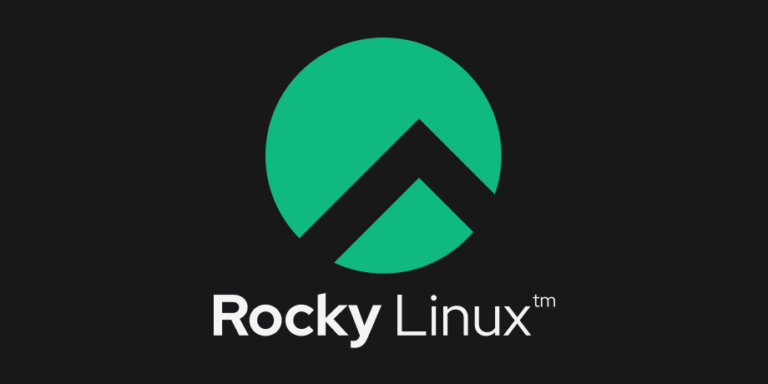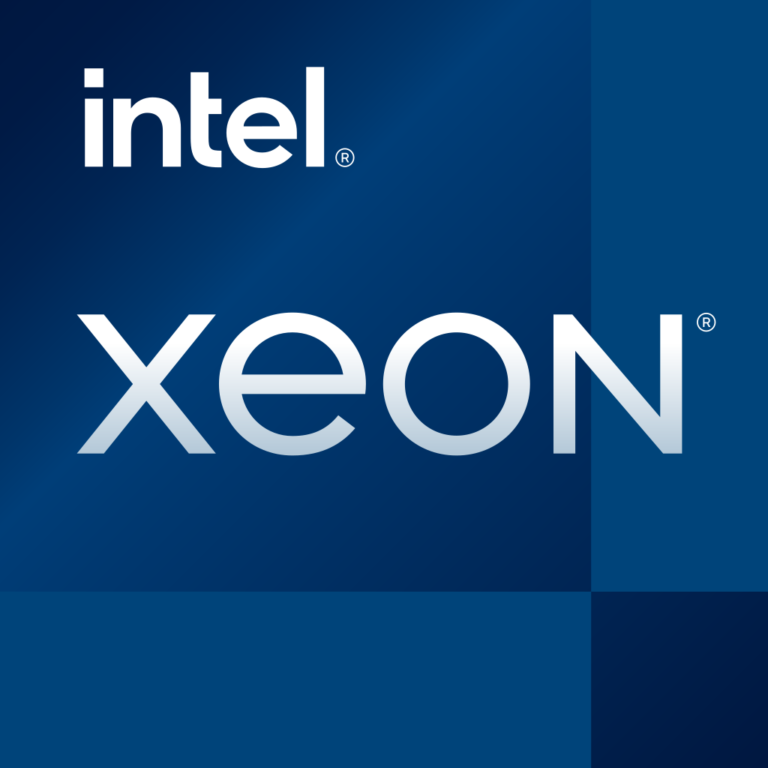Are you a sysadmin, developer, or desktop user looking for the perfect Linux distro? Look no further than openSUSE!
In this article, we will dive into the different versions of openSUSE, including Tumbleweed and Leap. We will also explore the various tools and resources available, such as openSUSE Tools, Code, and Hardware.
Discover how you can get involved with the openSUSE community through contributions and communication channels.
Stay tuned for reader reviews and feedback on this popular Linux distribution!
Key Takeaways:
- openSUSE is the preferred choice for sysadmins, developers, and desktop users, offering a comprehensive set of tools and resources.
- With two versions, Tumbleweed and Leap, openSUSE provides flexibility for users to choose the best fit for their needs.
- The openSUSE community encourages contribution in various forms and provides numerous communication channels to engage with other users and developers.
Introduction to openSUSE
openSUSE is a versatile and user-friendly Linux distribution popular among sysadmins, developers, and desktop users, known for its stability and regular software updates.
One of the key aspects that make openSUSE stand out is its commitment to stability, making it ideal for production environments where reliability is crucial. Its user-friendly interface caters to those newer to the Linux environment, providing a smooth learning curve for beginners.
For developers, openSUSE offers a plethora of tools and development environments that enhance productivity. The active community around openSUSE is also a major attraction, providing support, forums, and resources to ensure users have a smooth experience with the distribution.
Whether you are looking for a robust operating system for your server, a platform to develop software, or a stable desktop environment, openSUSE has something for everyone.
The makers’ choice for sysadmins, developers, and desktop users
openSUSE is the preferred choice for sysadmins, developers, and desktop users seeking a reliable and flexible distribution, often favored over alternatives like Debian, Red Hat, and Enterprise Linux.
One of the key reasons for openSUSE’s popularity is its robust package management system, YaST, which simplifies software installation and system configuration. The community-driven development model ensures frequent updates and a wide range of software choices, catering to diverse user preferences.
When compared to Debian, which is known for its stability and large software repository, openSUSE offers a balance between stability and the latest features.
For developers, the availability of tools like OBS (Open Build Service) and support for various programming languages make openSUSE an attractive platform for application development.
openSUSE Versions
openSUSE offers two main versions: Tumbleweed, known for its rolling release model, and Leap, designed for stable system environments with periodic updates.
Among the two versions of openSUSE, Tumbleweed stands out with its unique rolling release nature. This means that users receive the latest updates and software versions continuously, ensuring they are always on the cutting edge of technology. It’s ideal for enthusiasts and those who thrive on having the newest features and improvements without waiting for a new version release.
In contrast, Leap emphasizes stability and reliability for system environments. With periodic updates, Leap ensures that users have a consistent and well-tested platform that is less prone to sudden changes or potential bugs. This makes Leap a preferred choice for businesses and individuals who prioritize a secure and dependable operating system.
Tumbleweed
Tumbleweed is the cutting-edge version of openSUSE tailored for users and developers who prefer the latest packages, applications, and technology features.
It boasts a plethora of modern software updates and advancements that cater to those hungry for tech innovation. Tumbleweed ensures that users stay ahead of the curve with its continuous integration of bleeding-edge tools and features. Both novice and seasoned developers can benefit from the rich selection of developer tools and frameworks provided by Tumbleweed, creating an environment ripe for experimentation and exploration. This rolling-release model means that users are always at the forefront of software development, experiencing the latest trends and functionalities in real-time.
Leap
Leap stands out as the stable release of openSUSE, catering to users and developers who prioritize compatibility, ease of installation, and system stability.
In terms of compatibility, Leap excels in seamless integration with a wide range of hardware and software components, ensuring that users can easily set up their systems without facing compatibility issues.
Its user-friendly interface makes the installation process a breeze, even for those who are new to the world of Linux operating systems. The step-by-step instructions and intuitive design guide users through the setup, making it accessible to both beginners and experienced users alike.
In terms of system stability, Leap boasts a robust architecture that runs smoothly without frequent crashes or performance hiccups. This reliability is particularly valuable for developers who rely on a consistent environment for their projects.
Tools and Resources
openSUSE provides a range of tools and resources to support developers and users, including development tools, hardware compatibility resources, and code repositories.
As a developer or user working with openSUSE, you can benefit from a comprehensive set of development tools that streamline the process of creating, testing, and deploying software solutions. These tools include integrated development environments like GCC, Clang, and Qt Creator, along with version control systems such as Git for efficient code management.
OpenSUSE offers detailed hardware compatibility information, ensuring that your system is optimized for performance and stability. This valuable resource includes driver libraries, kernel modules, and compatibility guides to facilitate seamless integration with a wide range of devices and components.
openSUSE Tools
openSUSE Tools include essential utilities like the Zypper package manager and YaST configuration tool, give the power toing developers and users with efficient software management and system customization options.
These tools play a crucial role in the openSUSE ecosystem, allowing for seamless installation, upgrade, and removal of software packages. Zypper operates from the command line, providing a robust interface for package management, dependency resolution, and repository handling. On the other hand, YaST offers a graphical user interface for system configuration, making it easier for users to customize various settings, manage hardware components, and set up network connections.
Code
openSUSE encourages developers to contribute code to its open-source repository, fostering collaboration and innovation within the software development community.
Code contributions play a crucial role in the openSUSE ecosystem, allowing developers to harness their collective expertise and creativity to enhance the platform’s functionality and robustness. By sharing their code, contributors not only improve existing features but also introduce new functionalities, bug fixes, and optimizations. This collaborative effort helps in maintaining the high standards of quality and security that openSUSE is known for. The open-source nature of the project ensures transparency, scalability, and adaptability, making it a fertile ground for experimentation and continuous improvement.
Hardware
openSUSE ensures hardware compatibility and support, with a specific focus on features like snap support for streamlined installation and enhanced system performance.
By prioritizing compatibility and technology, openSUSE caters to the evolving needs of developers and users alike. Its robust support for various hardware configurations ensures a seamless experience for diverse systems.
The integration of snap support not only simplifies the installation process but also enhances system performance by providing access to a wide range of software packages. This emphasis on ease of use and performance optimization sets openSUSE apart as a user-friendly distribution that prioritizes the latest technology advancements.
Community Engagement
openSUSE fosters a vibrant community engagement model, encouraging active participation from users, developers, and contributors through various channels and collaboration opportunities.
With a strong emphasis on fostering a sense of belonging and collaboration, openSUSE provides numerous avenues for individuals to contribute their expertise and ideas to the community. Whether it’s through coding, documentation, testing, or even advocacy, there is a role for everyone to play in shaping the future of the openSUSE ecosystem.
Communication within the openSUSE community is seamlessly facilitated through diverse channels such as mailing lists, forums, IRC channels, social media platforms, and community events. This multi-faceted approach ensures that no matter one’s preferred mode of engagement, they can easily participate and stay informed about the latest developments and opportunities.
Contribute to openSUSE
Contributing to openSUSE allows users and developers to showcase their expertise, connect with the community, and actively participate in the development and enhancement of the distribution.
By getting involved in the openSUSE community, individuals have the opportunity to not only demonstrate their skills but also learn from other talented developers and enthusiasts. This collaborative environment fosters creativity, innovation, and a sense of belonging within the distributed team. Contributors can shape the future direction of openSUSE through their valuable input, feedback, and code contributions, making a direct impact on the evolution and improvement of the distribution.
Contribute Code
Contributing code to openSUSE enables developers to play a pivotal role in software updates, feature enhancements, and the overall evolution of the distribution.
By actively engaging in the codebase of openSUSE, developers not only have the opportunity to influence the direction of the software but also contribute towards the stability, security, and performance of the distribution. Each addition of code, whether a bug fix or a new feature implementation, has the potential to enhance the user experience and attract more users towards this open-source platform.
This collaborative effort fosters a sense of community among developers, encouraging knowledge sharing, problem-solving, and continuous learning. The diverse contributions from developers worldwide shape a robust ecosystem that thrives on innovation and adaptability, making openSUSE a dynamic and evolving software solution.
Contribute Hardware
Contributing hardware resources to openSUSE supports developers and enhances system performance, allowing for optimized compatibility and improved technology integration.
Hardware contributions play a crucial role in the continuous evolution of openSUSE. By offering robust hardware support, developers can harness the full potential of the operating system, ensuring smooth running of applications and efficient utilization of resources. This kind of support facilitates the incorporation of cutting-edge technologies, give the power tos developers to explore innovative solutions, and fosters a collaborative environment for troubleshooting and advancement. A well-supported hardware ecosystem not only maximizes system responsiveness but also contributes to the overall user experience by enabling seamless workflows and reliable performance.
openSUSE Communication Channels
openSUSE offers diverse communication channels to connect users, developers, and the community, facilitating discussions, support, and collaboration for a more engaged ecosystem.
These communication channels include forums, mailing lists, IRC chats, and social media platforms, all serving as vital avenues for exchanging ideas, troubleshooting technical issues, and fostering a sense of camaraderie among the openSUSE community.
Through these channels, users can seek help, share their experiences, and contribute to the ongoing development of openSUSE. Developers utilize these platforms to seek feedback, announce updates, and engage with users, effectively bridging the gap between the creators and the end-users.
Meet up with openSUSE at conferences
Attending openSUSE conferences provides a valuable opportunity for community engagement, knowledge sharing, and networking among users, developers, and technology enthusiasts.
These conferences serve as a hub for like-minded individuals to come together and exchange ideas, collaborate on projects, and stay up-to-date with the latest developments in the openSUSE community. The diverse range of sessions, workshops, and presentations cater to a wide array of interests and skill levels, making it a rich learning experience for participants.
The interactive nature of these conferences fosters meaningful connections, whether it’s discussing the intricacies of open-source technology or simply sharing experiences and best practices. Participants not only gain valuable insights but also forge new relationships that can lead to exciting collaborations and opportunities in the future.
Reviews and Feedback
openSUSE receives consistent reviews and feedback from users and developers, praising its performance, features, and community support.
Users and developers frequently commend the openSUSE distribution for its remarkable stability and robust performance, making it a favorite for both personal and enterprise use cases alike. The feature-rich environment offered by openSUSE is often lauded, with its extensive software repositories catering to diverse needs.
The thriving openSUSE community adds immense value, showcasing a vibrant ecosystem where individuals freely exchange ideas, provide support, and contribute to the continuous improvement of the platform. This collaborative spirit resonates throughout the user and developer communities, fostering a sense of belonging and mutual growth.
Reader Reviews
Reader reviews of openSUSE emphasize its user-friendly interface, vast application support, and exceptional stability, making it a top choice for both casual users and professionals.
One of the standout features that users consistently praise is the intuitive interface, which allows even beginners to navigate and utilize the system with ease. Coupled with a diverse selection of applications available through the openSUSE repositories, users find themselves equipped for a wide range of tasks and interests.
The renowned stability of openSUSE is a major draw for professionals seeking a reliable and secure environment for their work. This robust system ensures minimal downtime and smooth performance, crucial for productivity and uninterrupted workflow.
Latest Reviews
The latest reviews of openSUSE highlight its exceptional performance, timely updates, and the advantages of a rolling release model for users seeking cutting-edge software and features.
Reviewers have praised how openSUSE continues to excel in its performance benchmarks, showcasing superior speed and stability even when handling resource-intensive tasks. The frequency of updates within the distro has been a key standout feature, ensuring that users have access to the latest security patches and software enhancements in a timely manner. This commitment to regular updates is a significant advantage for those who prioritize staying current and secure in their computing environment.
The concept of a rolling release strategy appeals to many tech enthusiasts who value having immediate access to the newest software iterations without the need for major system upgrades. This continuous delivery method aligns perfectly with the preferences of users who yearn for the most up-to-date features and improvements without waiting for traditional release cycles. Embracing a rolling release paradigm give the power tos users to experience the latest software innovations as soon as they become available.
Frequently Asked Questions
What is openSUSE and why is it the ideal Linux distro for practical developers and system administrators?
openSUSE is a free and open-source Linux distribution that is known for its stability, security, and flexibility. It is also backed by a strong and supportive community of developers and users. Its extensive package management system and wide range of tools make it the perfect choice for practical developers and system administrators.
How does openSUSE differ from other Linux distributions?
One of the main differences of openSUSE from other Linux distributions is its unique approach to package management. It uses the YaST (Yet another Setup Tool) package management system, which allows for easy installation and management of software packages. It also offers a choice between two desktop environments, KDE and GNOME, giving users the flexibility to choose the one that best suits their needs.
Can openSUSE be used for both development and system administration purposes?
Yes, openSUSE is a versatile Linux distribution that is suitable for both development and system administration tasks. Its wide range of tools and packages make it ideal for coding, while its stability and security features make it a reliable choice for managing and maintaining systems.
Is openSUSE suitable for use in enterprise environments?
Yes, openSUSE is a popular choice for enterprise environments due to its stability, security, and extensive package management system. It also offers long-term support for its releases, making it a reliable choice for businesses.
How can I get support for openSUSE?
openSUSE has a strong and supportive community of users and developers who are always willing to help with any issues or questions. You can also find official documentation and support resources on the openSUSE website, including forums, mailing lists, and IRC channels.
Can I try out openSUSE before fully committing to it?
Yes, openSUSE offers a “Live” version that can be run from a USB or DVD without the need for installation. This allows users to test out the operating system and its features before deciding to install it on their system.




